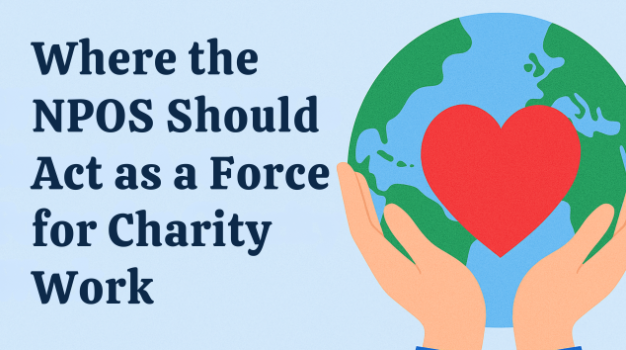Leonardo Cunha
Leadership | Entrepreneurship | Management | Planning | Strategy | Writing for Finance | Development finance expert | International speaker
18th August 2025
Non-Profit Organisations (NPOs) are often associated with charity. While this association is not entirely misplaced, it can be misleading. An effective NPO should not exist solely to live off donations. Instead, it should be structured around sustainable models of impact, whether through service provision, social business models, or collaborative partnerships. Yet, there remains a powerful role for NPOs to act as a force for charity work, particularly in moments of crisis, disaster, or urgent humanitarian need.
Emergencies such as natural disasters, armed conflicts, or global pandemics demand immediate mobilisation of resources. In these moments, the agility and legitimacy of NPOs make them indispensable actors. Research has shown that civil society organisations are often the first to respond in contexts where state structures are slow or absent (Aldrich & Meyer, 2015). The ability to mobilise charitable giving, both locally and globally, allows them to provide rapid relief that can save lives and restore dignity.
However, charity in this sense must be seen as complementary rather than central to an NPO's long-term strategy. Scholars have warned that dependency on donations risks creating organisational fragility and short-termism, undermining the transformative impact that social development requires (Edwards, 2014). Instead, the role of charity should be understood as situational: a vital response mechanism when communities face acute shocks. Beyond these moments, NPOs must focus on capacity building, empowerment, and systemic change.
One example is how international humanitarian organisations mobilised billions in response to the COVID-19 pandemic. This did not mean abandoning their long-term development programmes; rather, they leveraged their networks and credibility to act swiftly in an exceptional moment (OECD, 2021). Similarly, local grassroots organisations often mobilise donations during floods, droughts, or fires, playing a bridging role between communities in need and those willing to help.
In this sense, charity is not the business model of an NPO but one of its instruments. The capacity to inspire collective generosity should be seen as a strength-one that aligns with the moral and ethical legitimacy that civil society embodies. When used responsibly, this ability can complement more sustainable approaches, ensuring that NPOs remain both resilient and impactful.
NPOs should position themselves not as entities defined by charity but as platforms of trust and mobilisation. Their role in facilitating charity during emergencies is invaluable, but their true contribution lies in using that same credibility to build long-term resilience and transform societies beyond crisis.
References
Aldrich, D. P., & Meyer, M. A. (2015). Social capital and community resilience. American Behavioural Scientist, 59(2), 254-269. https://doi.org/10.1177/0002764214550299
Edwards, M. (2014). Civil society. Polity Press.
Organisation for Economic Co-operation and Development (OECD) (2021). Aid for COVID-19: Tracking support for the global response. OECD Publishing.


